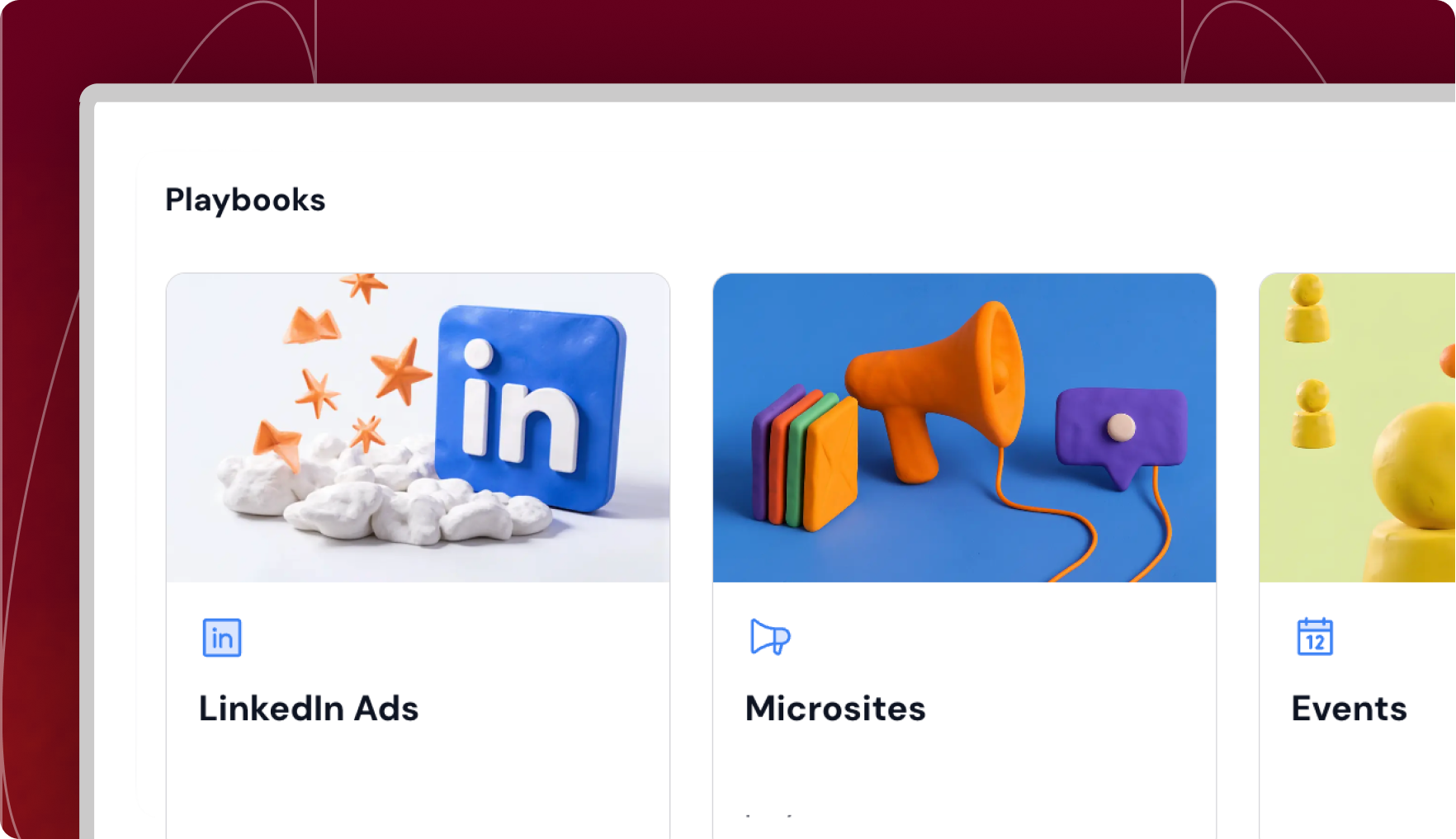Creating an ideal customer profile (ICP) is crucial for business success.
By defining your ICP, you can customise your products and services to match your target audience's needs.
This helps concentrate your marketing on potential buyers, boosting your chances of success.
Let's explore why defining your ICP is important and the benefits it brings to your business.
Understanding Your Ideal Customer Profile
Identify Your Ideal Customer Profile
When defining your ideal customer profile, it is important to consider both demographic characteristics and behavioural traits.
- Demographic characteristics include age, gender, income level, and location. These help identify your target audience.
- Understanding your ideal customer's behavioural traits and buying habits can reveal their preferences, needs, and pain points.
Create detailed buyer personas and use customer profile templates. This helps b2b marketers tailor sales strategies to specific customer segments and generate quality leads.
- Sales reps can use customer data to identify target accounts and engage in meaningful conversations with potential buyers.
- Focus on the unique selling proposition and product/service capabilities to align the sales cycle with the ideal buying process of the target market.
A data-driven approach helps b2b businesses allocate resources effectively and enhance customer service efforts.
- Conduct market research and manage customer experiences to develop title-specific personas.
- Incorporate account-based marketing strategies and existing technology to attract successful accounts and retain customers.
This approach can drive sales revenue and boost customer satisfaction in the long run.
Importance of Creating an ICP
Creating an Ideal Customer Profile is very important for b2b businesses. It helps identify the target market and customer segment accurately.
By defining an ICP, b2b marketers can:
- Create buyer personas and customer profiles that align with the company's sales strategy.
- Focus on target accounts and prioritize lead scoring.
- Engage in meaningful conversations with ideal customers.
Tailoring marketing campaigns based on the ICP ensures that the product/service addresses the unique pain points of the target customer.
It also:
- Helps create a future roadmap for the marketing team by understanding the ideal buying process.
- Enables the use of data-driven customer profiling and account-based marketing.
- Allows efficient allocation of resources, generation of quality leads, and improvement of customer success.
Benefits of Defining Your ICP
Defining your Ideal Customer Profile is important for tailoring marketing campaigns to meet specific audience needs. By creating detailed buyer personas and customer profiles, b2b marketers can better understand their target market and customer segments.
This helps in more accurate resource allocation and focusing on meaningful conversations with potential customers. Using ICP for Account-Based Marketing strategies can result in more successful accounts and assist the sales team in targeting specific accounts with a higher chance of conversion.
Implementing lead scoring based on ICP helps sales reps identify high-quality leads that align with the target customer profile. This leads to more efficient sales dollars spent.
Being data-driven in customer profiling allows b2b businesses to tailor their sales strategy and customer service to address pain points and meet the unique needs of their target audience.
This approach enhances customer success, aids in future road map planning, and improves the overall customer experience management.
Creating Your Customer Profile Template
Define your ICP
Your ideal customer profile helps you understand your target market better. Knowing the differences between your target market and buyer personas is important for successful customer profiling.
Defining buyer personas and exploring their information allows b2b marketers to create customer segment profiles that connect with their audience. Lead scoring and account-based marketing strategies can assist sales reps in finding quality leads and successful accounts.
With market research and analysing customer data, b2b businesses can adjust their sales approach to meet their target customer profiles' requirements. By matching product/service capabilities with the ideal buying process, customer success teams can have meaningful conversations with existing customers to boost sales.
To keep your b2b customer profile relevant, focus on experience management and resource allocation in the future. This ensures that your customer profiles always reflect the needs of your target audience.
Using Your ICP for Account-Based Marketing
Your Ideal Customer Profile is an important tool for tailoring marketing campaigns in Account-Based Marketing.
By clearly defining your buyer personas and customer profiles, you can create targeted messages that resonate with your target accounts. This helps your sales team have meaningful conversations with the right audience, resulting in successful accounts.
Using your ICP for lead scoring also helps prioritise target accounts based on their fit with your ideal customer profile.
This data-driven approach ensures that your sales team focuses on quality leads, leading to increased sales.
In Revenue Attribution Models for Account-Based Marketing, your ICP plays a key role.
By aligning your target customer profile with revenue generated, you can accurately measure the success of your marketing campaigns.
Understanding the unique selling proposition that appeals to your target market allows for effective resource allocation, maximizing the impact of your sales strategy.
Implementing your ICP in revenue attribution models ensures effective allocation of your marketing budget and measurable outcomes for your B2B business.
Steps to Define Your ICP
Research Your Current Customers
When researching your current customers, focus on collecting different types of data:
- Demographics
- Psychographics
- Purchase history
- Engagement metrics
- Customer satisfaction ratings
To gather feedback, consider using surveys, interviews, focus groups, or social media listening.
Analyse this information to create detailed buyer personas and customer profiles. This helps b2b marketers target specific customer segments and tailor their sales strategy to meet unique customer needs.
It also helps sales reps to:
- Identify target accounts
- Prioritize lead scoring
- Allocate resources effectively
Using customer data enables the development of a data-driven sales cycle and customer success team, which can effectively address pain points.
This research also helps in crafting a unique selling proposition and a customer-friendly experience management system.
Understanding the ideal buying process and future roadmap of successful accounts allows b2b businesses to have meaningful conversations with their target market, leading to quality leads and higher sales.
Create Buyer Personas
When creating buyer personas for your Ideal Customer Profile , consider the demographics and characteristics of your ideal customer.
Think about aspects like age, gender, location, job title, and company size. This understanding helps tailor your sales strategy to target accounts effectively.
Identify the pain points and challenges your ideal customer faces. This enables your sales team to address these issues and provide solutions that meet the customer's needs.
Understand how your ideal customer makes purchasing decisions and interacts with your products or services. This insight is crucial for lead scoring and customer profiling.
A data-driven approach helps b2b marketers allocate resources efficiently and have meaningful conversations with the target market.
Align your sales strategy with the buyer persona information gathered. This way, your sales team can focus on the unique selling proposition of your product/service and generate quality leads, driving sales growth.
Implement Lead Scoring
Implementing lead scoring is important for B2B marketers. It helps identify the ideal customer profile and target accounts effectively.
By using data-driven customer profiling and buyer persona information, sales reps can prioritize target accounts. This is based on their unique selling proposition and customer segment.
This allows the sales team to focus on quality leads with a higher likelihood of conversion. This, in turn, leads to meaningful conversations and successful accounts.
Incorporating lead scoring in the sales cycle enables B2B businesses to allocate resources efficiently. They can tailor their sales strategy to specific customer profiles and align their marketing efforts with the ideal buying process.
Ultimately, using lead scoring enhances customer experience management. It also helps in future road mapping based on customer data and market research.
Understanding the pain points of target customers and existing technology helps companies align their customer service and account-based marketing. This drives customer success and maximizes sales revenue.
Use Inbound Reporting
Customer profiling is about understanding your ideal customers. Inbound reporting helps b2b marketers achieve this. It provides insights for targeted marketing strategies.
Data-driven insights from inbound reporting help sales teams and marketers target accounts. They can create tailored marketing strategies and efficiently allocate resources.
Inbound reporting identifies the target market, customer segments, and unique selling propositions. This resonates with ideal customer profiles.
Detailed buyer persona information, such as pain points and ideal buying process, helps tailor sales strategies. This leads to successful accounts and quality leads.
B2b businesses can engage with their target audience using existing technology and customer data. Tailored solutions based on buyer persona questions can lead to increased sales.
Defining a customer profile template through inbound reporting aligns businesses with customer needs. This enhances customer experiences and boosts marketing campaign success.
Using Your ICP for Marketing Campaigns
Tailoring Campaigns to ICP
When tailoring campaigns to the Ideal Customer Profile , it's important to consider factors like buyer personas, customer profiling, and target market segments.
Marketers can align campaigns with the ICP by using data-driven insights, lead scoring, and collaborating with the sales team.
The ICP influences content and messaging by focusing on customer pain points, unique selling propositions, and title-specific personas.
Crafting meaningful conversations is influenced by successful accounts, customer success teams, and existing technology.
Account-based marketing, sales strategies, and future roadmaps are guided by the ICP, shaping resource allocation and customer service.
Market research, existing customers, and customer profiles help inform marketing decisions for quality lead generation.
Expert marketing advice and customer data are used to create tailored campaigns for the ICP, leading to successful sales and customer experience management in B2B businesses.
Measuring Success with Revenue Attribution Models
Measuring success with revenue attribution models means understanding how marketing campaigns impact sales.
To do this, b2b marketers need to define an ideal customer profile.
This helps attribute revenue accurately to specific marketing efforts.
Customer profiling is also useful for targeting the right audience and guiding sales reps towards target accounts.
By using lead scoring and data-driven insights from customer profiles, businesses can optimise their marketing strategies for their target market.
This approach allows sales teams to have meaningful conversations with target customers based on their unique pain points and buyer personas.
When sales strategies align with the ideal buying process of target customer profiles, businesses can drive successful accounts and customer retention.
Companies can enhance customer service and experience management by using existing technology for account-based marketing and customer data analysis.
Market research, customer profiles, and buyer persona information are valuable tools for resource allocation.
They also help ensure a future roadmap that meets the needs of the target audience.
Over to you
Understanding your ideal customer profile is important for businesses. It helps them target their audience better.
Defining your ICP means you can make marketing strategies that are more personal. This can help you acquire and satisfy customers more effectively.
By knowing the key traits of your ideal customers, you can adjust your products and services to match their needs.
Generated £1.3M pipeline by focusing on UTM parameters personalisation.


Generated £1.3M pipeline by focusing on UTM parameters personalisation.







